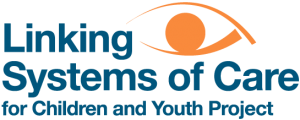 The Linking Systems of Care for Children and Youth (LSC) project was launched in January 2015 designed to address child and youth victimization through multi-year state-level demonstration projects. Since its inception, the National Council of Juvenile and Family Court Judges (NCJFCJ) has been the national technical assistance provider for the project. Together, the NCJFCJ and the demonstration states of Illinois, Montana, Ohio, and Virginia support and document statewide reforms and initiatives that promote healing for victims of crime and develop and coordinate trauma-informed prevention and intervention services for these children and youth and their families.
The Linking Systems of Care for Children and Youth (LSC) project was launched in January 2015 designed to address child and youth victimization through multi-year state-level demonstration projects. Since its inception, the National Council of Juvenile and Family Court Judges (NCJFCJ) has been the national technical assistance provider for the project. Together, the NCJFCJ and the demonstration states of Illinois, Montana, Ohio, and Virginia support and document statewide reforms and initiatives that promote healing for victims of crime and develop and coordinate trauma-informed prevention and intervention services for these children and youth and their families.
As this demonstration project comes to a close in 2021, the NCJFCJ hosted the final All Sites meeting virtually on December 2-4, 2020. The three-day meeting was interactive and well attended by a multi-disciplinary group of national technical assistance partners, judges, state-level stakeholders, pilot community members, demonstration site teams, and other interested community members.
The agenda included themes of celebrating project accomplishments, reflecting on the impact the projects have had in their communities, sharing ideas of sustainability, and the opportunity for participants to receive training on relevant topics like recognizing and balancing the impacts of working with survivors of trauma, supporting youth survivors of sex-trafficking, growing in leading organizations toward cultural humility and inclusion, and engaging the judiciary (described below).
NCJFCJ Member Hon. Victor Reyes (Ret.), opened the meeting with a discussion on a Balanced Life: Enhancing Our Emotional and Physical Stability and led a discussion acknowledging the existence and effects of trauma in our professions and ways to mitigate its consequences in all aspects of our lives. NCJFCJ Member Hon. Janice Rosa (Ret.) moderated a judicial panel that consisted of NCJFCJ Past Presidents Hon. Ramona A. Gonzalez and Hon. Patricia Martin. The panelist discussed the importance of judicial partnership in sustaining local and state-level efforts and ways to best leverage judicial leadership.
Concurrent sessions were held that addressed Making Our Work Meaningful to Cultures and Communities. Presenters from the Center for the Study of Social Policy presented information on The Need to Recognize and Maximize the Strengths of Black Children and Youth. Presenters from Casa de Esperanza provided information on Moving Beyond Translating for Latin American Populations. Presenters from the National American Indian Court Judges Association presented information on Meaningful Relationships with Tribal Communities: the Historical Context and the Importance of Collaboration.
A local organization, Awaken, Communities United to End Sex Trafficking, shared strategies used to engage fund and support youth advisory boards and provided a virtual tour of the drop-in center that provides direct services to women and girls transitioning from sexual exploitation.
Dr. Ramon Pastrano, President of the Third Sphere, LLC, provided an Introduction to Leading with Cultural Competence. Dr. Pastrano discussed the need for collaboration, interdependence, and cooperation to solve problems creatively and to address issues on a systems integrated basis.